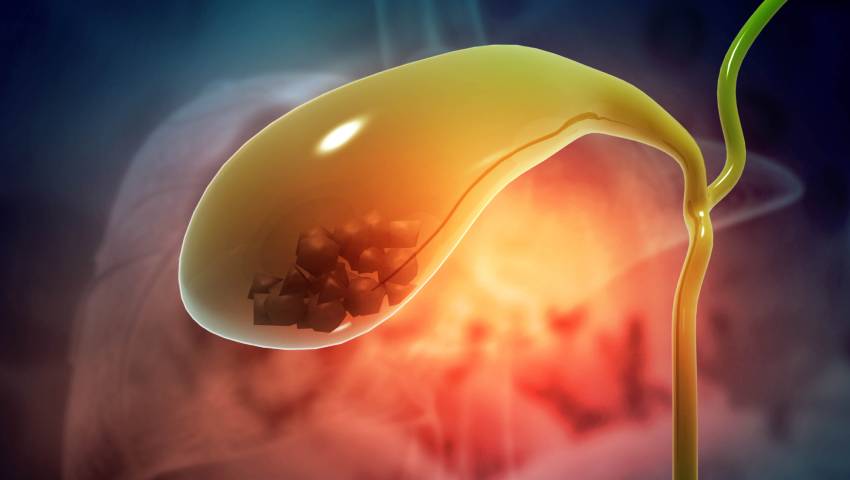
- 13/12/2023
- Dr. Samrat Jankar
- 0 Comments
- Blog
The Link Between Gallstones and Gallbladder Cancer: What You Need to Know
Gallstones, those hardened deposits that form in the gallbladder, are a common medical condition. But can they lead to something more serious, like gallbladder cancer? The answer is complex, but understanding the link between these two conditions can help you make informed decisions about your health. Dr. Samrat Jankar, an expert gastroenterologist in Pune, Maharashtra, sheds light on a crucial connection that often goes unnoticed—the link between gallstones and gallbladder cancer. In this blog post, we will delve into the intricate details of this connection, exploring the risk factors, signs, and preventive measures that people should be aware of.
What are Gallstones?
Gallstones are formed when cholesterol, bile pigments, and other substances in bile harden. They can vary in size, from small grains of sand to large, golf ball-sized stones. While most individuals with gallstones experience no signs, they can cause upper abdominal pain, nausea, vomiting, and digestive problems if they block the bile ducts.
Gallstones and Gallbladder Cancer: Is there a link?
While gallstones are common, gallbladder cancer is relatively rare, affecting around 2 in 100,000 individuals each year. However, studies have shown a clear link between the two conditions. People with gallstones are at approximately five times higher risk of developing gallbladder cancer compared to those without. The risk further rises with:
- Size of gallstones: Larger gallstones, specifically those exceeding 3 cm in diameter, are linked to a significantly higher risk of developing cancer.
- Chronic inflammation: When gallstones aggravate the gallbladder lining, it can lead to chronic inflammation. This long-term inflammation can damage cells and potentially increase the risk of cancer.
- Porcelain gallbladder: This condition, characterized by a thickened and hardened gallbladder wall, is often associated with a higher risk of cancer.
- Chemical irritation: Bile contains substances that can irritate the gallbladder lining. When gallstones are present, these chemicals can become more concentrated and potentially contribute to cancer development.
Other Risk Factors for Gallbladder Cancer:
- Age: The risk of gallbladder cancer grows with age, especially after the age of 50.
- Gender: Women are two to three times more likely than men to conceive gallbladder cancer.
- Ethnicity: Native Americans and Hispanics have a higher risk of gallbladder cancer than other ethnicities.
- Family history: Having a family history of gallbladder cancer or other types of bile duct cancer can improve your risk.
- Obesity: Obesity is a significant risk factor for gallstones and potentially for gallbladder cancer as well.
- Certain medical conditions, such as primary sclerosing cholangitis and porcelain gallbladder, are associated with an improved risk of gallbladder cancer.
Symptoms of Gallbladder Cancer:
Unfortunately, gallbladder cancer often doesn’t cause any signs in its early stages. When signs do appear, they can mimic other conditions, making diagnosis challenging. Some potential symptoms of gallbladder cancer include:
- Upper abdominal discomfort, especially on the right side
- Unexplained weight loss
- Loss of appetite
- Nausea and vomiting
- Jaundice (yellowing of the skin and eyes)
- Fever and chills
- A lump in the abdomen
If you experience any of these symptoms, consult the best gallbladder surgeon in Pune, Maharashtra, immediately for diagnosis and appropriate treatment.
Understanding the Risk Does Not Mean Panic:
While the link between gallstones and gallbladder cancer is undeniable, it’s important to remember that the risk remains relatively low. Most people with gallstones never develop cancer. However, understanding this link allows for informed decision-making and early detection.
What You Can Do?
If you have gallstones, particularly large ones or accompanied by symptoms, it’s critical to:
- Consult Dr. Samrat Jankar: If you have gallstones, discuss the potential risk of gallbladder cancer with Dr. Samrat Jankar, the best gallstones specialist in Pune, Maharashtra. They can help assess your individual risk based on your medical history and other factors. They can also suggest appropriate screening tests, such as abdominal ultrasound, to detect any changes in the gallbladder early on.
- Consider gallbladder removal surgery: This is the most effective way to prevent gallbladder cancer, especially for people with high-risk factors.
- Maintain a healthy lifestyle: A balanced diet, regular exercise, and weight management can contribute to overall health and potentially reduce the risk of developing cancer.
- Be aware of symptoms: While rare, symptoms like constant abdominal pain, jaundice, and unexplained weight loss should initiate immediate medical attention, as they might indicate gallbladder cancer.
Early Detection and Treatment:
Living with Gallstones:
If you have gallstones but don’t experience any signs or haven’t developed any high-risk factors, regular monitoring by your doctor might be sufficient. However, it’s crucial to stay educated about your condition and understand the potential risks.
Can gallstones be prevented?
While there’s no assured way to prevent gallstones, you can take steps to reduce your risk:
- Maintain a healthy weight
- Eat a balanced diet low in saturated fat and cholesterol
- Exercise regularly
- Drink plenty of water
- Discuss preventive steps with your doctor if you have additional risk factors
Conclusion:
While the link between gallstones and gallbladder cancer exists, it’s important to recognize that the risk remains low. However, understanding this connection empowers people with gallstones to make informed decisions and prioritize their health. Maintaining a healthy lifestyle, having regular checkups, and being aware of potential signs can contribute significantly to early detection and successful treatment.
